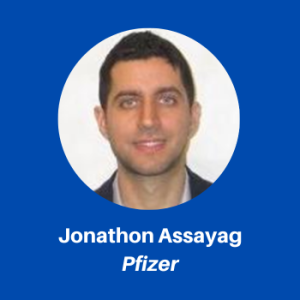Designing Your RWD Study: Is Your Data Fit for Purpose? |
Real-world data is being used more and more to generate evidence to support or accelerate healthcare decisions. There are multiple types of RWD sources to choose from and choosing the one that is best fit for the research question at hand is not always easy. A data source may be well suited for one study but not suited at all for another. A recurring theme from the regulators has been to ensure that the RWD we use is fit for purpose. How to determine if a data source is fit for purpose involves thorough review of the data and any data dictionaries, what/how it is collected, attributes of the population the data relates to, and the relevance, quality and biases associated with the different variables needed for analysis, to name a few. During this Community Forum, presenters will share their experiences, knowledge and reflections on study design considerations, ways to determine if data is fit for purpose, the regulatory perspective and what the industry, as a whole, has learned so far. The HL7 FHIR standard will be discussed as a means for getting our RWD into a format that is fit for purpose. This Community Forum will take place on 6 July , 14:00–15:00(BST)/09:00–10:00 (EST). To register please click here. |
| Presenter | Bio |
|---|---|
Andy Richardson is an independent clinical standards and data management consultant with Zenetar, with more than 30 years’ CRO and pharma experience. His principal interests are in operational data efficiency and currently in the use of the HL7 FHIR standards in support of clinical research. Andy is an active PHUSE Working Group member and is a key member of the HL7 Vulcan SOA and related projects. He holds degrees in pharmacology from Sunderland (BSc) and Leicester (PhD) and is an LSHTM tutor. | |
Elizabeth Merrall is an Associate Director in Biostatistics at Janssen Vaccines and has been working in the industry for nearly 12 years. She is a keen follower of methodological developments, particularly in the area of real-world data, and participates in both the PHUSE and PSI real-world data special interest groups. Elizabeth holds a PhD in Medical Statistics from the University of Cambridge, a master’s from the University of Southampton and an undergraduate degree from Imperial College London (UK). | |
Jonathan Assayag is Global Director RWE Scientist Oncology at Pfizer in the evidence RWE generation department. He supports oncology deliverables using real-world data for non-interventional studies. He has been at Pfizer for over six years and prior to this role he worked in medical affairs at Pfizer Canada. Jonathan recently joined the PHUSE Real World Evidence Working Group. He has an MSc and PhD in Pharmacoepidemiology and is also an adjunct faculty at McGill University in the Faculty of Medicine. | |
Mary Anne Rutkowski is currently a Principal Scientist at Merck & Co in a Statistical Programming department, where her team provides high-quality programming analysis and reporting deliverables using real-world-data for non-interventional studies. She has been at Merck for over 30 years and during her first 25 years she had many roles, most of which were in programming groups that used clinical trial data for regulatory submissions or claims data for marketing analysis. Mary Anne recently joined the PHUSE Real-World Evidence Working Group. She has a bachelor’s degree in engineering, a master’s degree in computer science and a master’s degree in business administration. |




